Indigenous Governance Database
core values
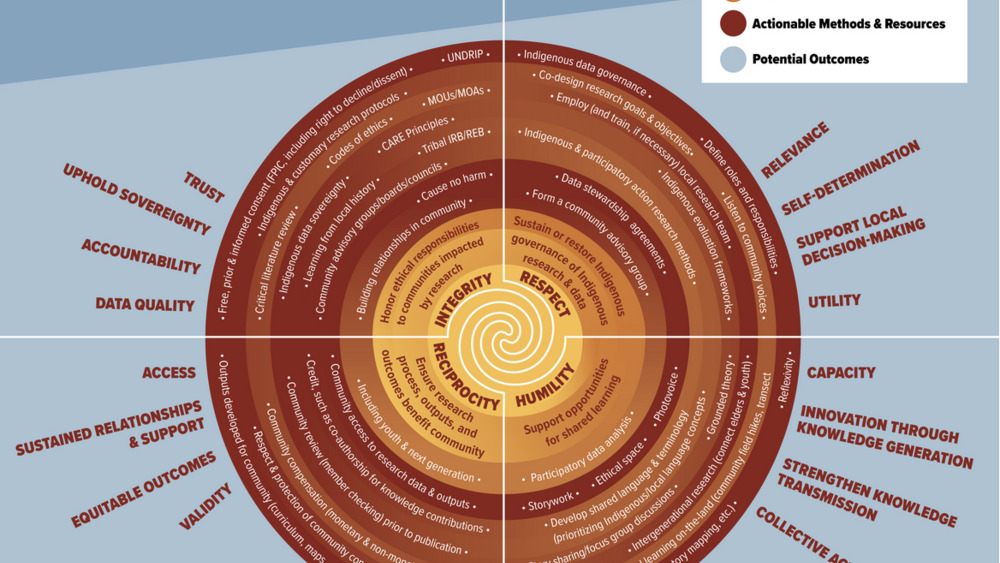
A values-centered relational science model: supporting Indigenous rights and reconciliation in research
Addressing complex social-ecological issues requires all relevant sources of knowledge and data, especially those held by communities who remain close to the land. Centuries of oppression, extractive research practices, and misrepresentation have hindered balanced knowledge exchange with Indigenous…
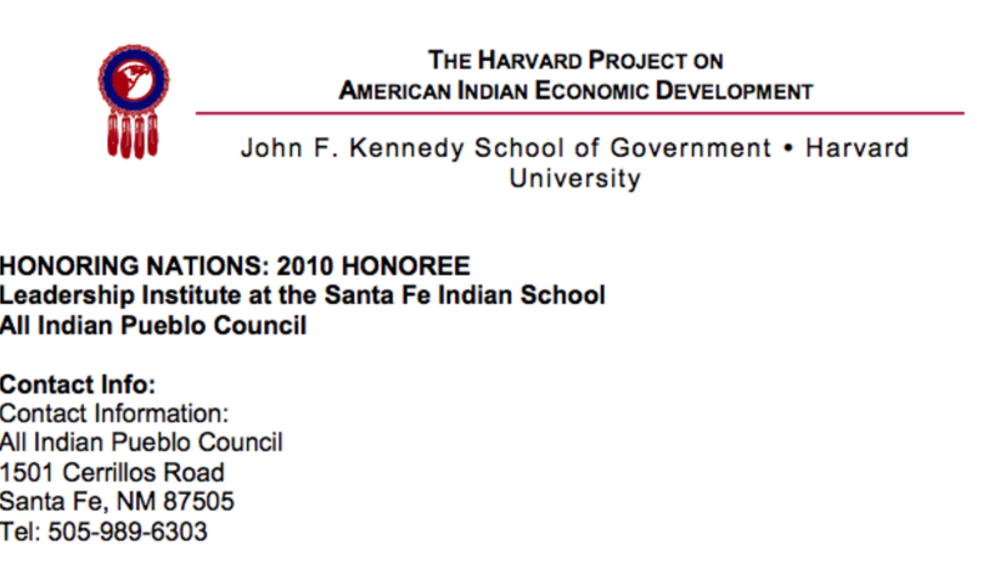
Leadership Institute at the Santa Fe Indian School
Founded in 1997, the Leadership Institute at the Santa Fe Indian School aims to create a dynamic learning environment in which community members not only learn and teach, but are able to actively contribute to the success of their nations. Four themes guide the Institute’s work: leadership,…
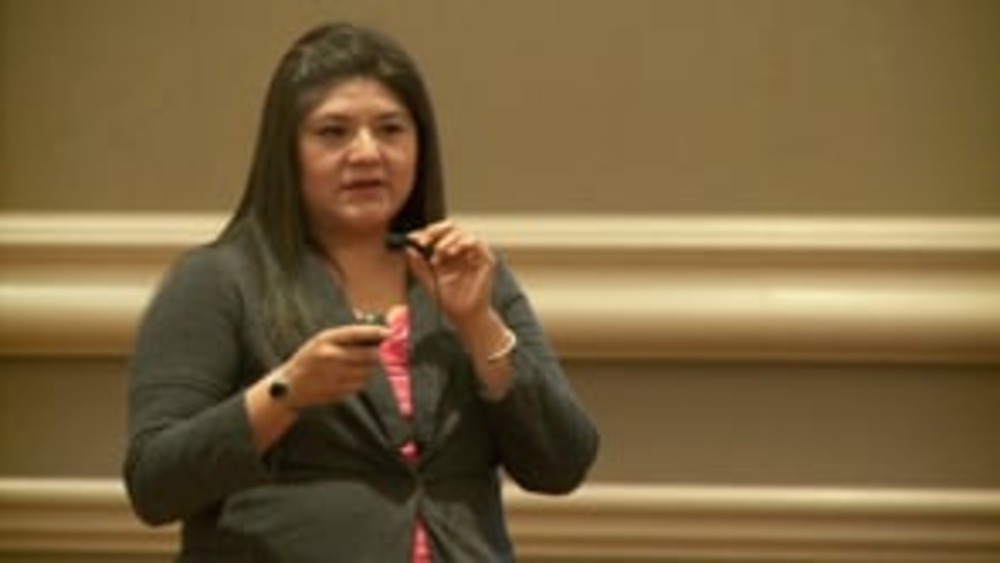
Shannon Douma: Cultivating Good Leadership: The Santa Fe Indian School's Summer Policy Academy
Shannon Douma (Pueblo of Laguna) provides a detailed overview of how the Santa Fe Indian School's Summer Policy Academy works to develop Pueblo youth to ably take the leadership reins of their nations through a rigorous curriculum designed to build up their sense of cultural identity and personal…
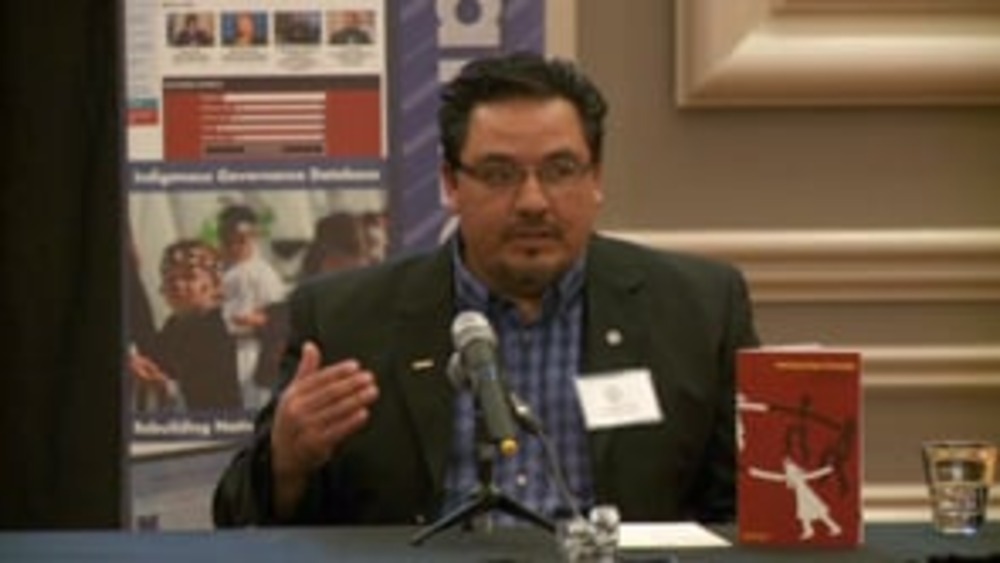
Carlos Hisa and Esequiel (Zeke) Garcia: Ysleta del Sur Pueblo: Redefining Citizenship (Q&A)
Carlos Hisa and Zeke Garcia from Ysleta del Sur Pueblo (YDSP) field questions about YDSP's current community-based effort to redefine its criteria for citizenship, and they provide additional detail about the great lengths to which YDSP has gone in order to document the origins and history of their…
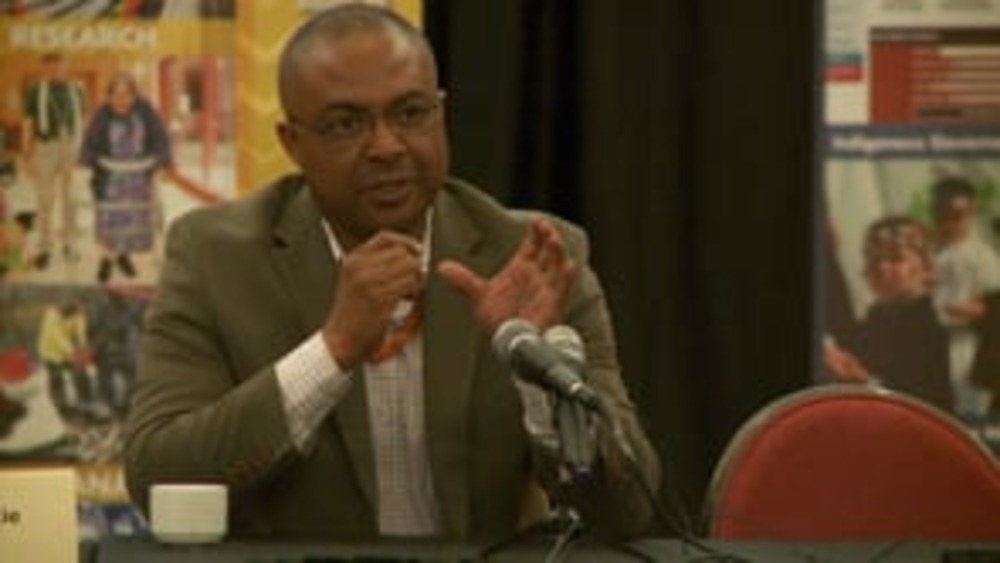
Shannon Douma and Richard Luarkie: How Do We Choose Our Leaders and Maintain Quality Leadership? (Q&A)
Shannon Douma and Richard Luarkie (Pueblo of Laguna) field questions from seminar participants about how the Pueblo and also the Santa Fe Indian School's Summer Policy Academy groom Pueblo youth to take over the reins of leadership of their nations.
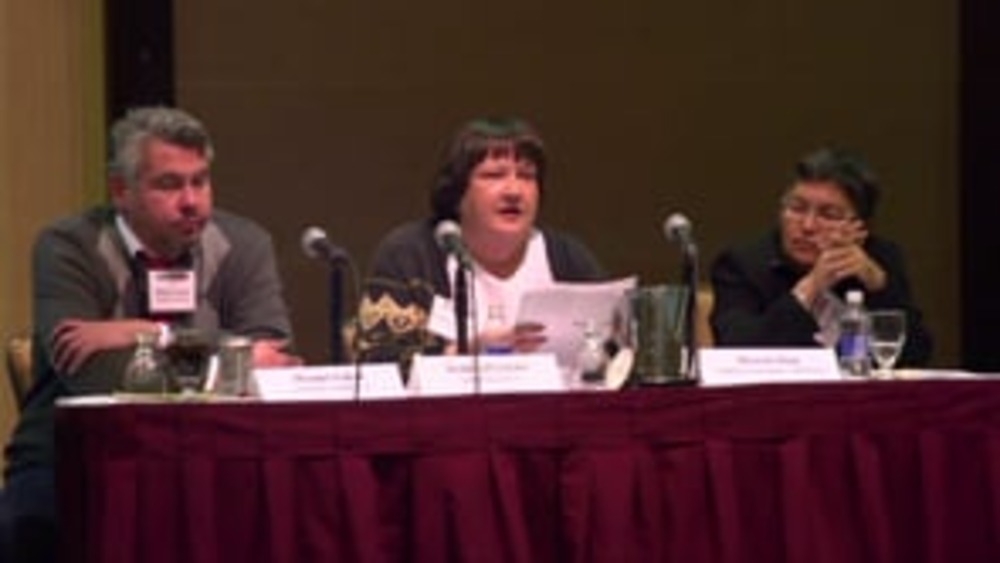
Deborah Locke: Disenrollment: My Personal Story
Deborah Locke, adopted by a Fond du Lac Band of Lake Superior Chippewa couple when she was a small child, shares her heartbreaking story of how she and her adopted siblings were disenrolled by the Band decades later because they were not the biological descendants of Fond du Lac Band members and…
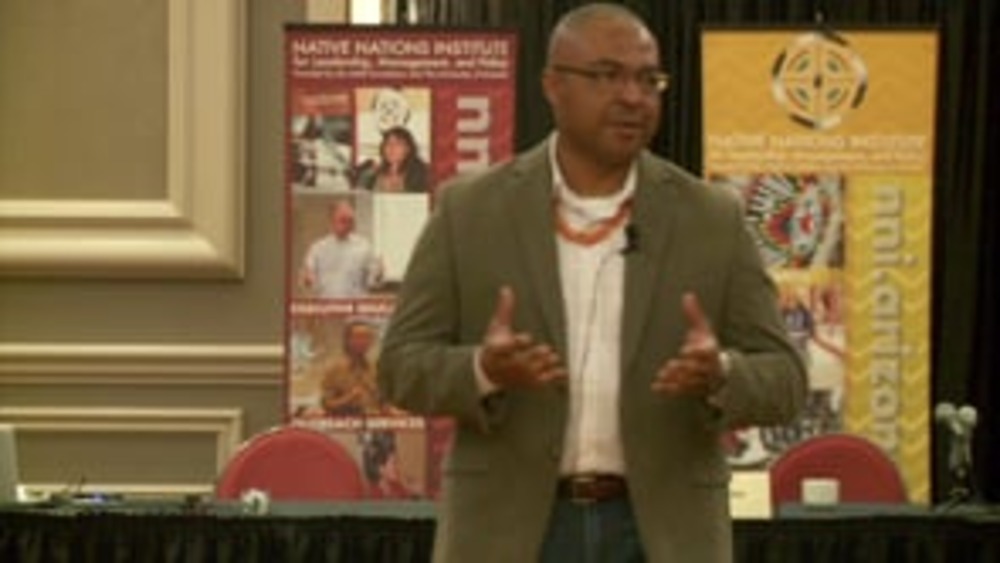
Richard Luarkie: How Do We Choose Our Leaders and Maintain Quality Leadership?: The Pueblo of Laguna
Pueblo of Laguna Governor Richard Luarkie provides a brief overview of how Laguna citizens gradually and systematically ascend up the leadership ranks within the Pueblo through their adherence to and practice of Pueblo core values.
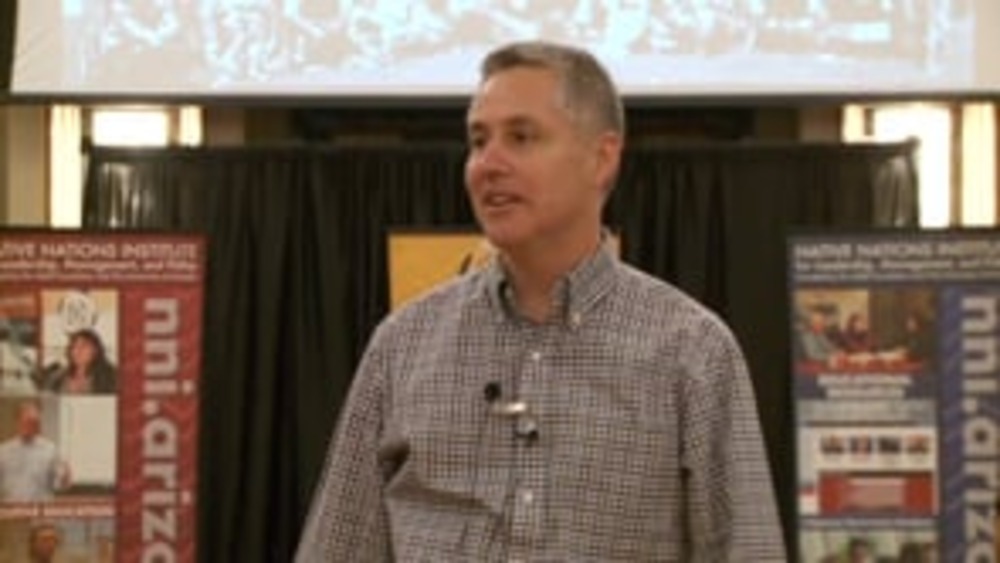
John Borrows: Who Are We and How Do We Know?
University of Minnesota Law Professor John Borrows (Anishinaabe) discusses how the Anishinaabe traditionally defined and practiced notions of social identity and belonging, and how those definitions and practices were rooted in relationships: relationships between those deemed to be part of the…
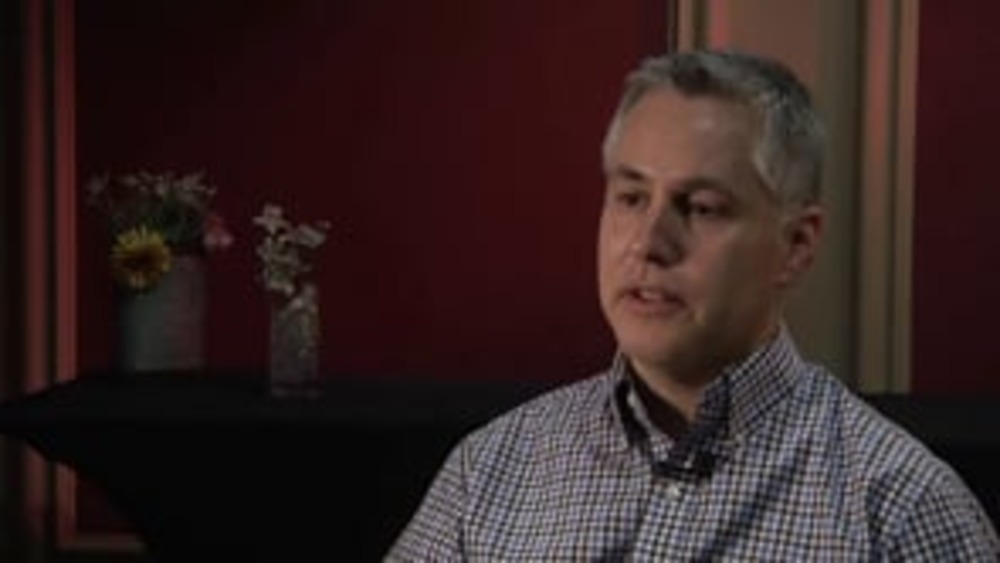
John Borrows: Revitalizing Indigenous Constitutionalism in the 21st Century
In this thoughtful conversation with NNI's Ian Record, scholar John Borrows (Anishinaabe) discusses Indigenous constitutionalism in its most fundamental sense, and provides some critical food for thought to Native nations who are wrestling with constitutional development and change in the 21st…
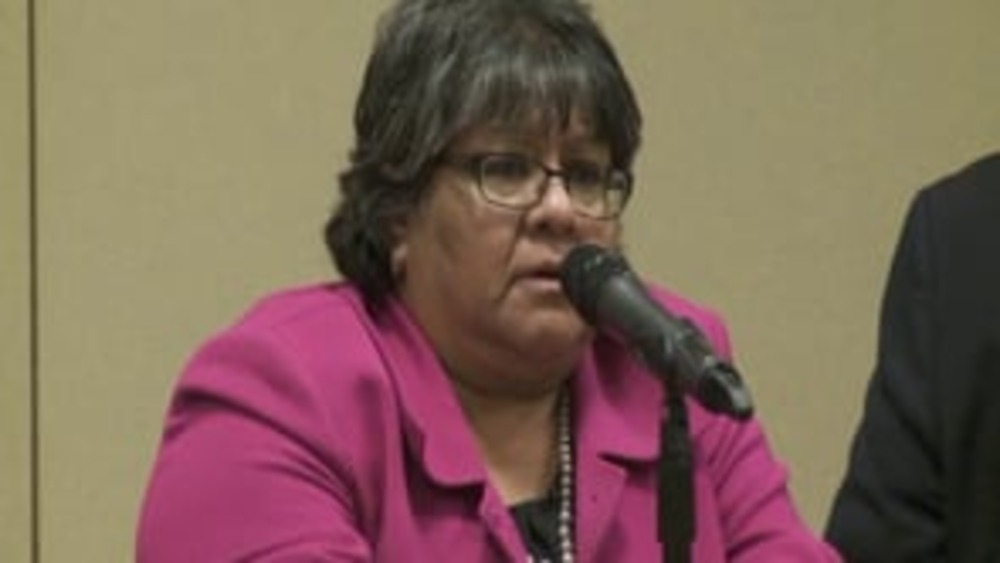
Luann Leonard, Stephen Roe Lewis and Walter Phelps: Bridging the Gap: How Native Culture Forges Native Leaders
Luann Leonard (Hopi), Stephen Roe Lewis (Gila River Indian Community), and Walter Phelps (Navajo) discuss how their personal approaches to leadership have been and continue to be informed by their Native nations' distinct cultures and core values and those keepers of the culture in their…
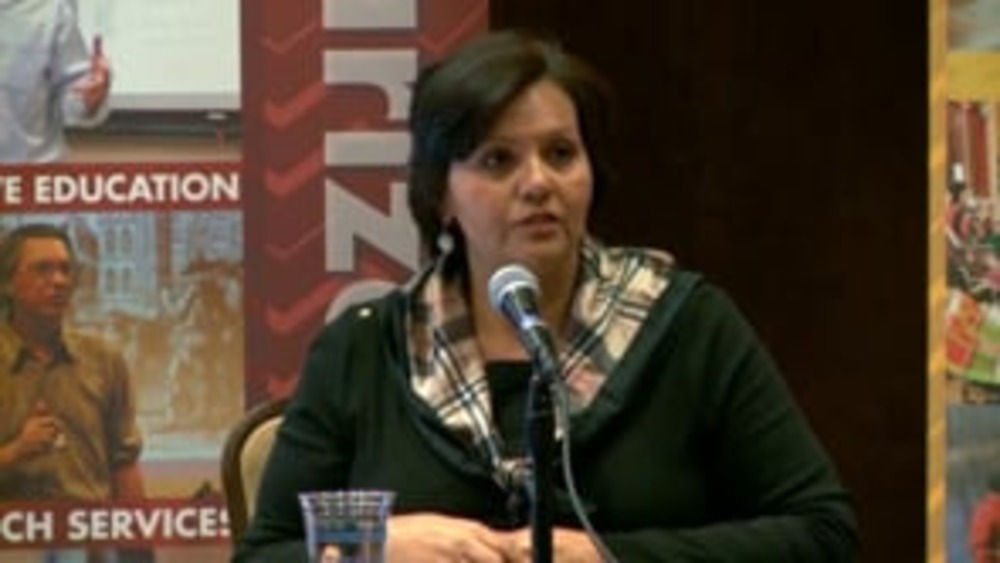
Rae Nell Vaughn: So What's So Important About Tribal Courts?
Rae Nell Vaughn, former Chief Justice of the Mississippi Choctaw Supreme Court, discusses how justice systems are critical to Native nations' exercise of sovereignty, and sets out some key things that those systems need to have in place in order to administer justice fairly and effectively on…
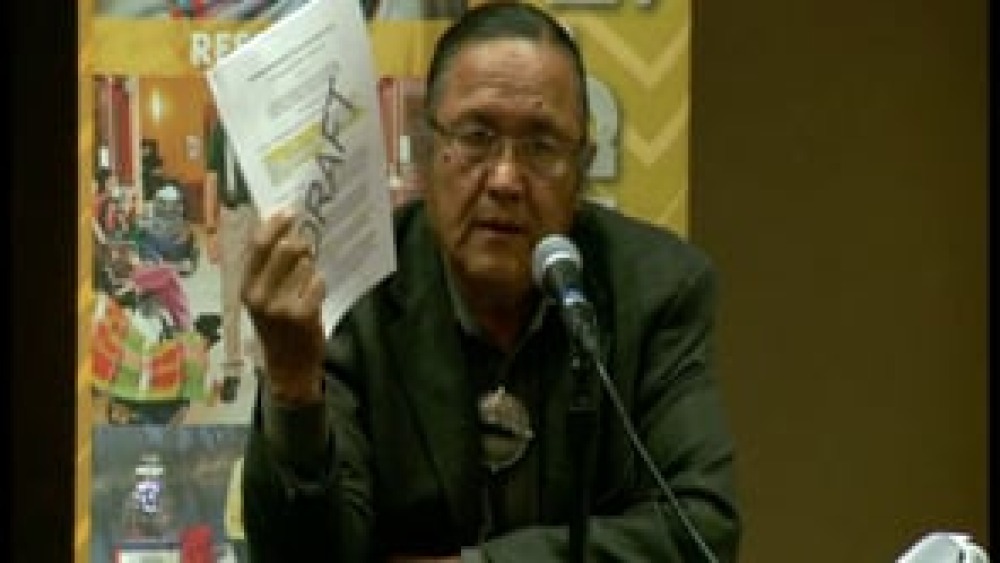
Robert Yazzie: Traditional Principles of Leadership
Former Chief Justice Robert Yazzie of the Navajo Nation Supreme Court provides an overview of the traditional Diné governance system and specifically the leadership principles that Diné leaders relied upon to make sound, informed, strategic decisions in consultation with and on behalf of…
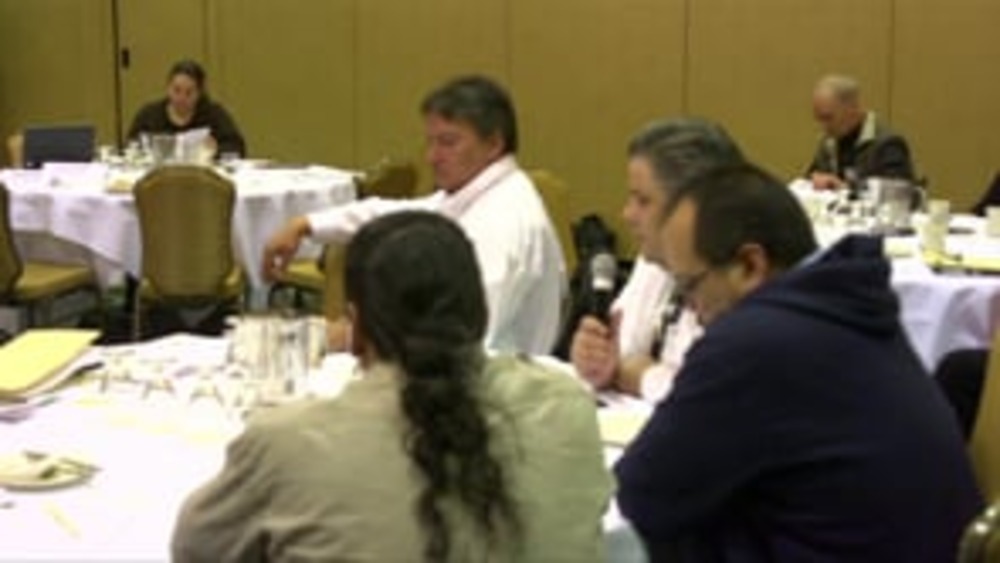
Jill Doerfler and Matthew Fletcher: Defining Citizenship: Blood Quantum vs. Descendancy (Q&A)
Panelists Jill Doerfler and Matthew Fletcher fields questions from the audience, and several participants offer their heartfelt perspectives on the complicated cultural and social dynamics surrounding citizenship and identity in their respective Native nations and communities. This video…
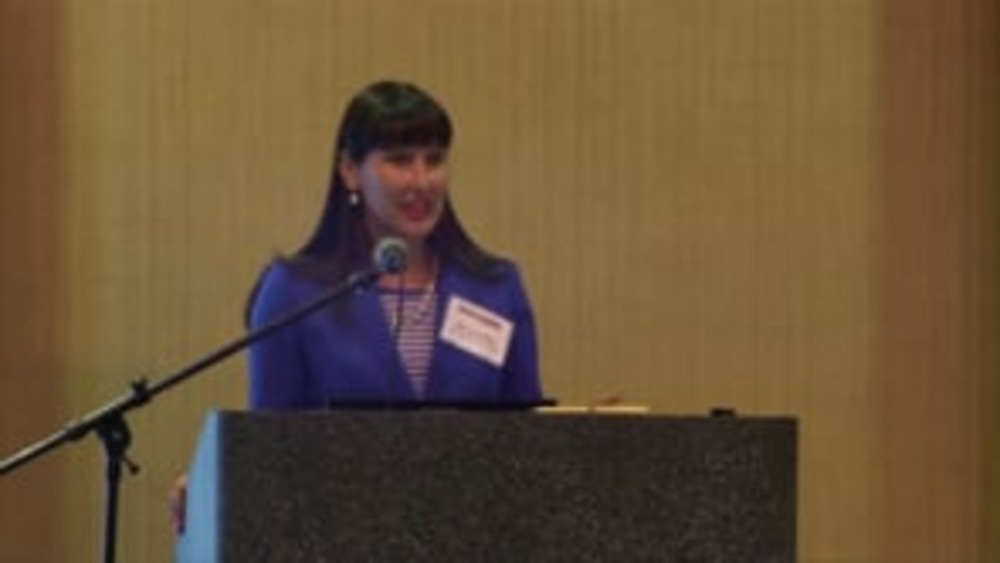
Jill Doerfler: Defining Citizenship: Blood Quantum vs. Descendancy
Scholar Jill Doerfler (Anishinaabe) talks about the colonial origins of blood quantum as a criterion for determining "Indian" and tribal identity, and explains how the federal government imposed that criterion upon the White Earth people in order to divest them of their land. She also stresses the…
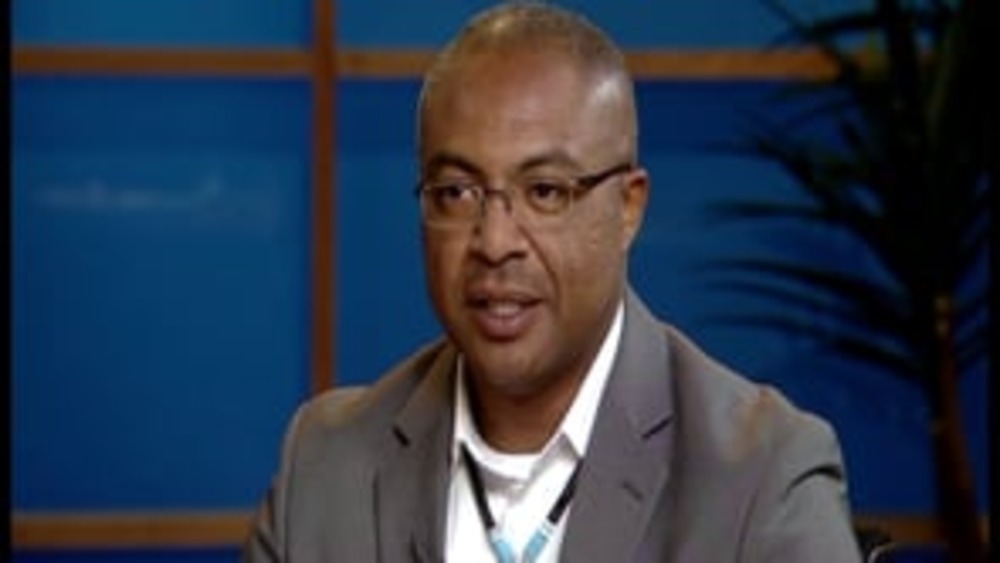
Richard Luarkie: Leadership and Nation Building at Pueblo of Laguna
In this informative interview with NNI's Ian Record, Governor Richard Luarkie of the Pueblo of Laguna discusses Laguna's approach to nation building, the roles their core values and time-tested process for cultivating effective leaders has played in that effort, and how and why Laguna has worked to…
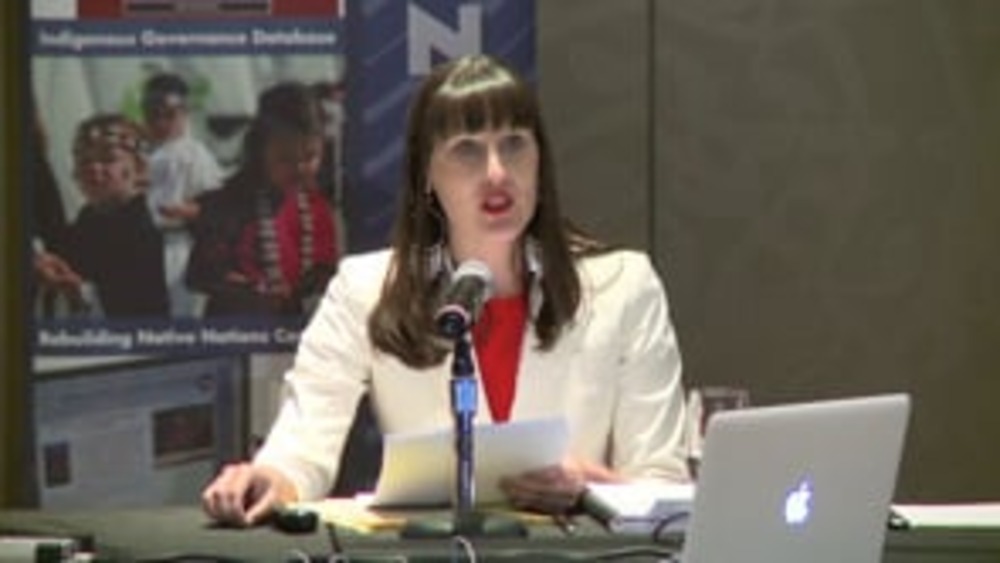
Jill Doerfler: "No Easy Answer": Citizenship Requirements
Anishinaabe scholar Jill Doerfler discusses the process that the White Earth Nation followed to arrive at their new constitution, and details the evolving debate at White Earth about which citizenship criteria it would incorporate into this new governing document.
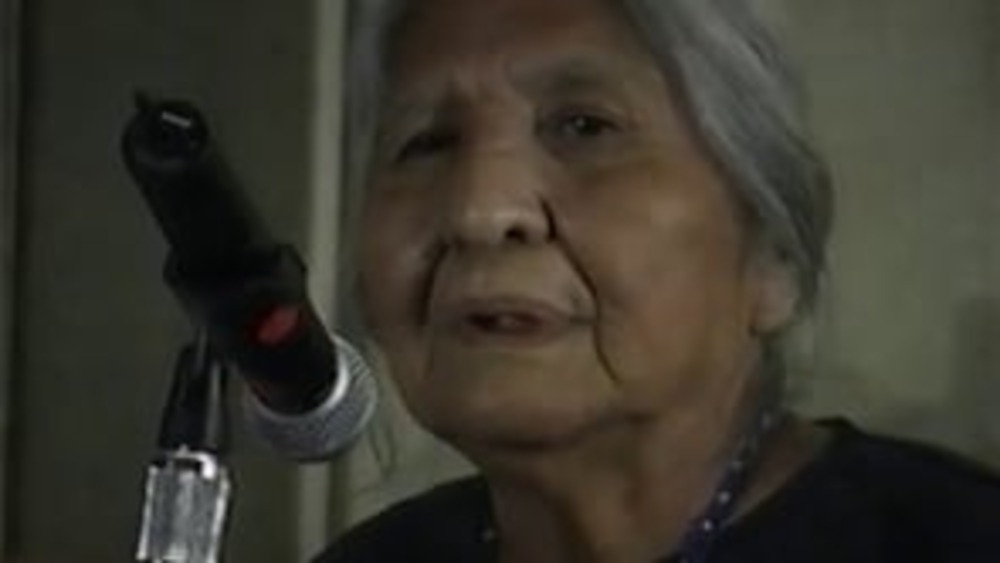
Honoring Nations: Jeanette Clark Cassa: San Carlos Apache Elders Cultural Advisory Council
Jeanette Cassa (1929-2004), Coordinator of the San Carlos Apache Elders Cultural Advisory Council (ECAC), discusses ECAC's work and the traditional Apache core values that its member elders work to instill in the younger generations of Apache people. She also stresses the importance of tribal…
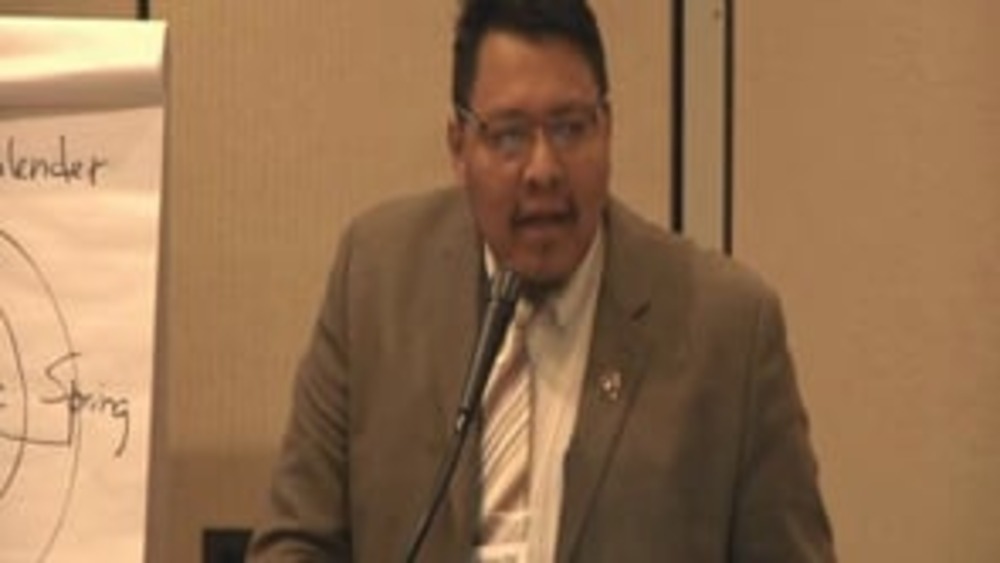
Darrin Old Coyote: Reforming the Apsaalooke (Crow) Nation's Governing System: What Did We Do and Why Did We Do It?
Vice Secretary Darrin Old Coyote of the Crow Tribe's Executive Branch provides a brief history of the Crow Tribe's governance system, and explains the factors that prompted the Tribe to abandon its governance system in 2001 and replace it with a new constitution and system of government…
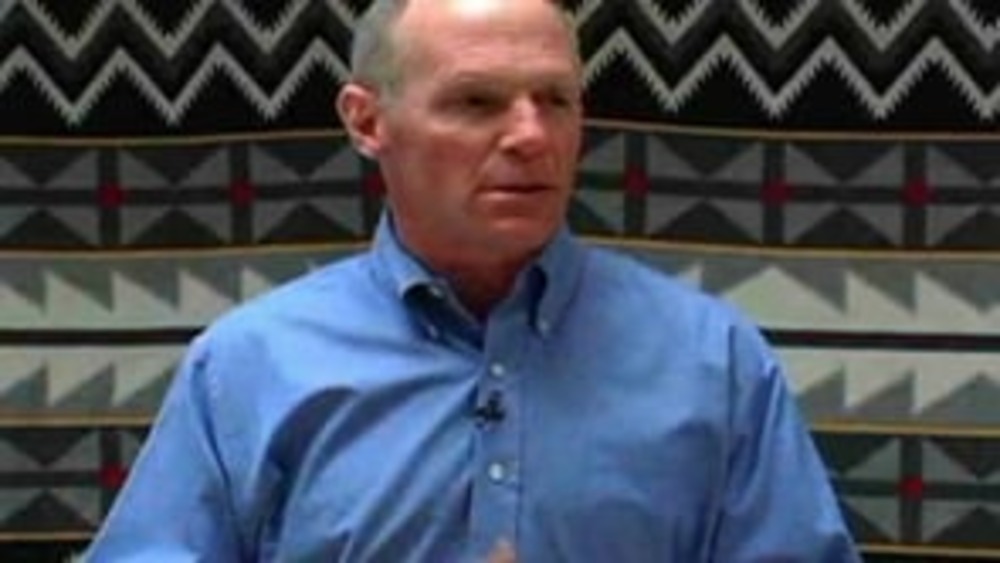
From the Rebuilding Native Nations Course Series: "What Do We Mean When We Say 'Constitutions'?"
Harvard Project on American Indian Economic Development Co-Director Joseph P. Kalt provides a definition of 'constitutions' in the context of nation building.
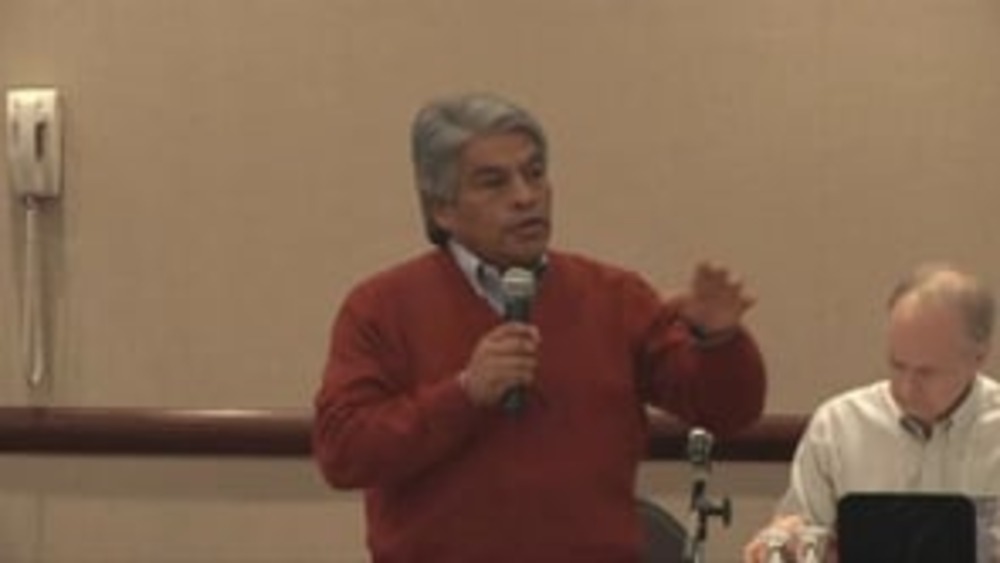
Regis Pecos: The Role of Core Values in Cochiti Governance and Renewal
In this excerpted video, former Cochiti Governor Regis Pecos provides an overview of the core values that are integral to Cochiti's culture and way of life, and shows how his people relied on the application of those core values to overcome a catastrophe and rebuild its nation and community. This…
